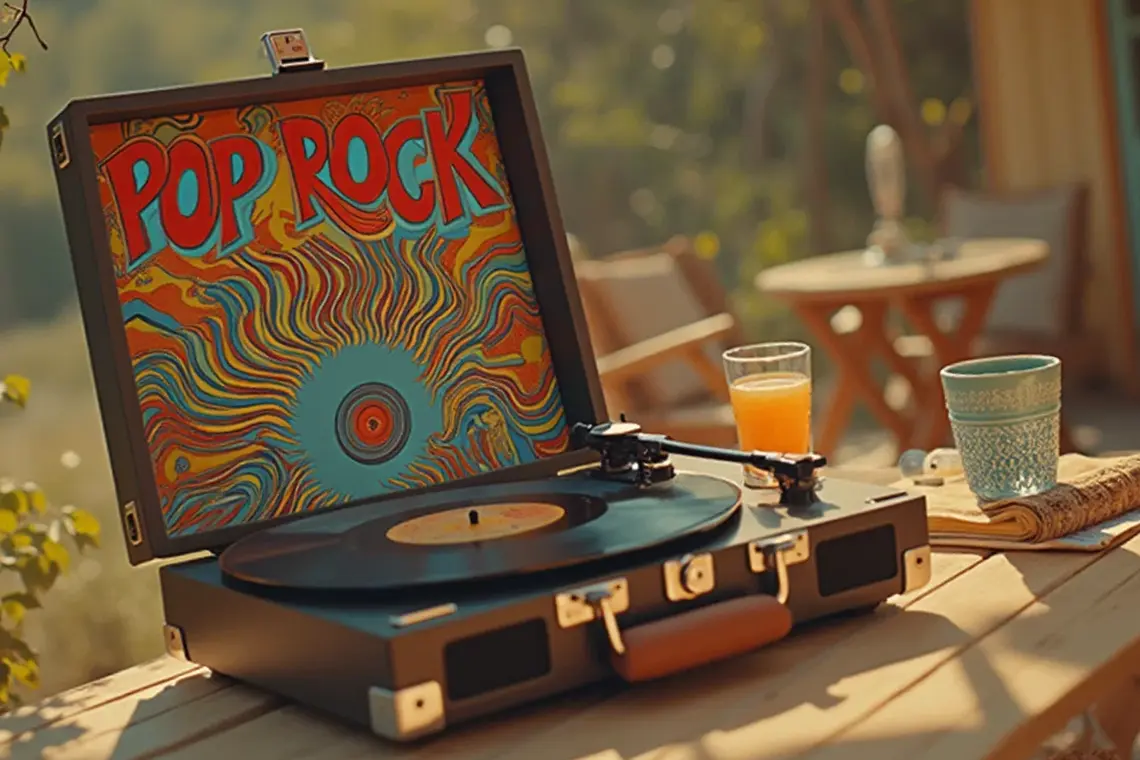Pop Rock is a style of Rock with a strong commercial slant (and associated radio exposure) and is characterized by a greater emphasis on professional songwriting and recording craft, as well as less emphasis on attitude, compared to standard Rock music. It is a genre that emerged from the fusion of Pop and Rock elements and is used to describe typical Pop music (verse-chorus with catchy hooks/riffs and vocals), which can also be categorized as Rock, following the traditional Rock form (drums, guitar, bass, propulsive rhythms, and vocals).
Some argue that it can be considered as a distinct genre field rather than music that overlaps with Pop and Rock. The detractors of Pop Rock often deride it as a slick, commercial product and less authentic than Rock music.
I think of Pop/Rock as a single, continuous field of genres.
Johan Fornäs
“Pop Rock” is an upbeat variety of Rock music.
Larry Starr, Christopher Waterman
Much Pop Rock music has been very similar in sound, instrumentation, and even lyrical content. The terms Pop Rock and Power Pop have been used to describe more commercially successful music that uses elements from, or the form of, Rock music. Writer Johan Fornäs views Pop/Rock as “one single, continuous genre field”, rather than distinct categories. To the authors Larry Starr and Christopher Waterman, it is defined as an “…upbeat variety of Rock music…” represented by artists and bands such as Andy Kim, The Bells, Paul McCartney, Lighthouse, and Peter Frampton.
The genre of Pop Rock manifested at the tail end of the 1950s as a more radio-friendly alternative to Rock & Roll and R&B, consisting mainly of white performers such as Roy Orbison and Del Shannon. Early Pop Rock was also influenced by the 1960s Beat style, arrangements, and original style of Rock & Roll (and sometimes Doo-Wop).
The term Pop has been used since the early 1940s to refer to popular music in general, but in the mid-1950s, it began to be used for a distinct genre, aimed at a youth market, often characterized as a softer alternative to Rock & Roll. In the aftermath of the British Invasion, from about 1967, it was increasingly used in opposition to the term Rock, to describe a form that was more commercial, ephemeral, and accessible.
Over the next decade, Pop and Rock continued to mix and create/feed back subgenres like Vocal Surf and Beat.
In the 1970s, Pop Rock became both rougher (Power Pop) and smoother (Soft Rock). In the 1980s-90s, it fused with some Alternative Rock to make Jangle Pop and Britpop. Jangle is a noun-adjective that music critics often use in reference to Guitar Pop with a bright mood.
Today, Pop Rock remains an active, wide-ranging music genre with much crossover between other Pop and Rock styles.
sources: discogs, wikipedia, rateyourmusic
Listen to only the best of Pop Rock music of all time
Choose your mood and enjoy…!



56 Followers